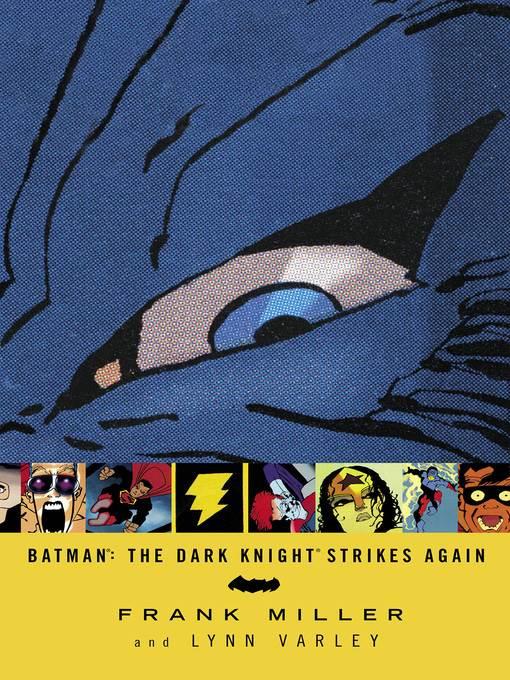
Batman: The Dark Knight Strikes Again
Batman: The Dark Knight Strikes Again (2001)
کتاب های مرتبط
- اطلاعات
- نقد و بررسی
- دیدگاه کاربران
نقد و بررسی

Starred review from April 28, 2003
This revision of an iconic character, the sequel to Miller's The Dark Knight Returns,
has been one of comics publishing's most anticipated events. As installments of the DK2 comic appeared, controversy mounted. Much sloppier and gaudier, the strip didn't really resemble Miller's earlier book, and in the wake of September 11, Miller's in-your-face confrontation with authority figures upset some readers. The collected book edition makes it easier to appreciate why he'd take such risks. Miller sees Batman as an extremist, pushed to the verge of insanity because he can't compromise his beliefs. In this continuation, he's convinced today's world is controlled by powers even crazier and more ego driven than he is. And he's right. Lex Luthor and Brainiac have imprisoned, enlisted or intimidated Earth's superheroes; but the only one they can't control is the hero with no super powers, just furious moral rage. Superman, the ultimate voice of reason, tries to calm Batman. Instead, all hell breaks loose, in pages full of bursting shapes, digitized Day-Glo colors and jagged continuity. Intense as the reading experience is, it's less disturbing than Batman's assault on the masters of America and their accomplices. Miller peppers the book with caricatures of current politicians and pundits rubbing shoulders with outrageously cartoonish goons as they defend a computer-generated president and the Freedom From
Information Act. If the masters of power are engaging in terrorism, this work suggests, why shouldn't rebels use terror in return? But how does a successful rebel avoid becoming a fascist leader himself? These are the questions Miller asks in this serious, important comic, a work that's intentionally disturbing in many ways and on many levels.

January 1, 2003
Miller's " Dark Knight Returns" (1987), in which an older, grimmer Batman emerged from retirement, paved the way for grittier superheroes and more freewheeling approaches in mainstream comics storytelling; and it set the tone for the character's recent screen apotheosis. Its long-awaited sequel isn't going to revolutionize the genre again, but in some ways it is even more audacious. Batman leads the opposition in a dystopian near-future when security concerns have spurred a repressive crackdown. Other costumed heroes side with either the government or Batman, allowing Miller to present revisionist versions of DC Comics' other iconic characters. The book's authoritarian society resonates with the post-9/11 environment, though Miller's cheekiness dispels notions that this is serious commentary. His layouts are even more unconventional, his drawing more cartoonish, the coloring more florid, and his overall attitude just generally more over-the-top. Fans harshly rebuked Miller's irreverent refusal to offer more of the same when the story debuted in serial-magazine format, but they avidly bought each issue. The collected edition should meet with similar demand.(Reprinted with permission of Booklist, copyright 2003, American Library Association.)

























دیدگاه کاربران